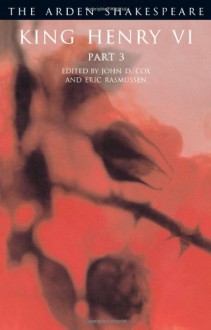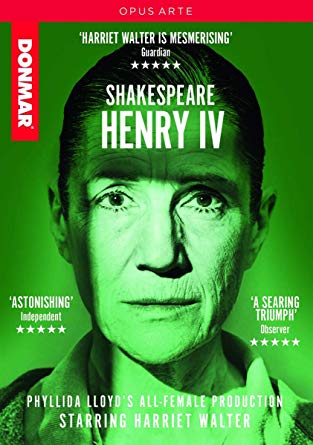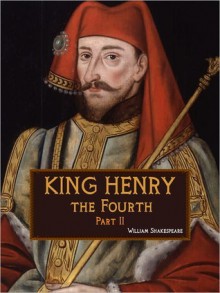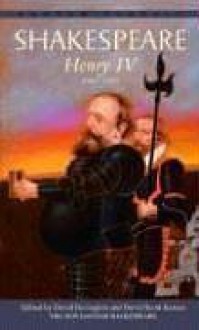
As I read through this play I began to realise how closely connected it is to Richard III, which is not surprising since this play was written shortly after Henry VI. In many way, much of the action in Richard III, as well as a number of the characters, stem from this play. I remember watching the Ian McKellan version of Richard III and seeing this woman, Margaret, making an appearance and wondering about her connection to the play. After reading this play (as well as the previous two) and also once again over the synopsis, it began to make sense. In fact I am almost tempted to watch it again, though I am also tempted to order the DVD series, The Age of Kings, which includes all of Shakespeare's history plays from this cycle, beginning with Richard II and ending with Richard III, from Amazon.
I will not go into any detailed discussion on whether this play is good or not namely because since it is Shakespearian its quality as literature goes without saying (even though it may be nowhere near as good as some of his other works). I will also try not to go into details about Shakespeare's warnings of revolution against an established monarch as I will look at that further when I discuss the three plays as a whole. However, I will try to look at this particular play, even though it effectively forms the middle part of a trilogy, composing of Henry VI part 2, Henry VI part 3, and Richard III. In fact, this play begins straight after the previous play ends, though Richard III begins sometime after the end of this play.
Another thing that struck me is how much this play reminded me of Game of Thrones. Granted, George Martin did indicate that he based his series on the War of the Roses, though I must admit that that aspect seem to arise only in the two series that I have seen (since only the first two books have been made for television at the time of my originally writing this review). Both have a child king (though Henry is nowhere near as psychotic as Joffrey) and both have the sudden beheading of a major character as well as a strong female character that seems to be the power behind the throne. While I suspect that this play is a major influence on Martin's work, I have also noticed that he seems to borrow ideas from a lot of other places as well.
The play begins after the Lancastrian forces loose the opening battle of the war and make peace with the Yorkists in return for handing the throne to the Duke of York. However not all of his forces are agreeable to this, in particular Queen Margaret. Noting that much time has passed since Henry married her as a child, we begin to see her take a much more active role in running the country, and in fact she takes the reigns of the country from Henry and begins to run it herself. I guess this is the main reason that Henry is seen as such a weak king, and even though he regains his throne for a time, the dispute between the two houses are so fierce that once that stage is reached there is no turning back. However, it is Margaret's actions in capturing, killing, and displaying York's head on the gates of York that really inflame the situation. While York was alive there was always a chance for peace, but once York is killed the chance of reconciliation was over.
Remember, this play is about the collapse of government and throughout the play England is in flames. This is represented by the father killing a son and a son killing a father: family loyalties have been divided and even the nobles, such as Warwick, are constantly changing sides. However, throughout the play I am always conscious of the fact that the Lancastrians seem to be in the weaker position. They lose more battles than they win, and even with French auxilaries, they are unable to turn the tide in their favour.
Like any war, we also see the belligerents appealing to history. The Yorkists and the Plantagenats claim a common ancestry and they recall the deposing of Richard II by Henry Bollingbroke as the reason for their claim to the throne. However, for those of us familiar with Richard III, we also notice that Edward's claim to the throne is quite tenuous as well. It seems that the idea that usurping the throne will never bring about peace, it will only create a precedent which brings about many more claimants who are willing to seize the throne by whatever means necessary.
It is also funny that this play also sort of reminded me of Star Wars, though I should point to part II in in this regards because Attack of the Clones ends with the opening battle of the Clone Wars and Henry VI part II ends with the opening battle of the War of the Roses. What is more interesting is that Revenge of the Sith ends with the usurpation of the throne by Palpatine in the same way that Henry VI part III looks forward to the usurpation of the throne by Richard. However I will consider this further as I look at all three plays as a whole.



 Log in with Facebook
Log in with Facebook 













